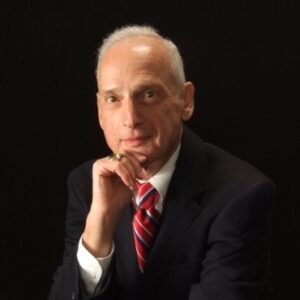Our donors’ generosity fuels the foundation’s ability to fund education, research, and professional development programs that support college health professionals and the students they serve.
We extend our deepest gratitude to the people and organizations who support our work.
Foundation Builders
ACHF donors are making a true impact on college health by lending their financial support to fund innovative ideas. ACHF is very grateful to these donors who have made meaningful contributions to help build a foundation for the future of college health.
Annual Donors
The American College Health Foundation is pleased to recognize the following donors for their generous contribution during the calendar year.
ACHF Legacy Society
The ACHF Legacy Society recognizes those individuals who have named the American College Health Foundation as a beneficiary in their estate plan.
- William Christmas, MD
- Jay Cranston, MD
- Connie Crihfield, MSN, CRNP
- Gary MacLachlan
- Ralph Manchester, MD
- Barbara Reifler, CFRE
- Clifford Reifler, MD
- Drs. Bill and Peggy Ingram Veeser
- Robert L. Ward, MSEd
- Stephan D. Weiss, PhD
- J. Robert Wirag, HSD
- Interested in planning ahead by making a “leave behind gift” to the foundation through an estate plan? Learn more about the ACHF Legacy Society.
Our Project Partners
ACHF works with other organizations to create partner-supported resources on a variety of college health topics and help advance campuswide well-being.
ACHF Donor Privacy Policy
All information concerning donors or prospective donors, including their names, addresses, and telephone numbers, the names of their beneficiaries, the amount of their gift, etc., shall be kept strictly confidential by the staff of the American College Health Foundation (ACHF) and members of its Board of Directors unless permission is obtained from the donor to release such information.
The exception to the above policy will be that, unless otherwise instructed by the donor, the names of those persons and organizations who have contributed to ACHF will automatically be included in a list of donors to be on display at ACHA annual meetings and on the ACHF webpage. Contribution amounts will not be specified but donor names will be grouped in various giving categories.
Donor Spotlight
10 Questions with Stephan D. Weiss, PhD
 Dr. Stephan D. Weiss most recently founded the Stephan D. Weiss, PhD, Mental Health Fund for Higher Education with ACHF, the largest individual gift in ACHF history. He also has two additional funds that support student mental health and well-being: The Stephan D. Weiss Student Mental Health Award and the Weiss Writing Prize.
Dr. Stephan D. Weiss most recently founded the Stephan D. Weiss, PhD, Mental Health Fund for Higher Education with ACHF, the largest individual gift in ACHF history. He also has two additional funds that support student mental health and well-being: The Stephan D. Weiss Student Mental Health Award and the Weiss Writing Prize.
Dr. Weiss is an ACHF board member and an avid supporter of the ACHF since his years as a graduate student. He resides in Cincinnati, Ohio.
1. What are you most proud of in your life?
I am proudest of the success of my philanthropic support of student wellness projects in higher education.
2. What was your first gift to philanthropy and why?
My first gift was to the University of Cincinnati Gardner Neuroscience Institute (UCGNI) capital campaign. UCGNI came to my attention in philanthropic discussions with the UCGNI Foundation. It was my introduction to non-program “giving” and led to other such capital “naming” philanthropic projects.
3. Why did you become such a philanthropist? What is your motivation for giving?
“Giving back” to those institutions that have fostered my academic and my professional opportunities has been the “mission” of my philanthropy.
4. What’s your favorite way to spend a weekend?
My favorite leisure activities include reading and catching up with my friends. My favorite local restaurants include “Bonefish,” Season’s 52” and “Trios” because I prefer menus that feature seafood, salads and seasonal choices. My entertainment choices include feature films, symphonic music and seasonal professional sports.
5. How do you want to be remembered?
I want to be remembered for my “gifts that keep on giving” in support of mental health in higher education.
6. What are you most proud of in your life?
I am proudest of overcoming the challenges of my childhood to turn “lemons into lemonade” in my lifetime.
7. Are there any books or other media that you would recommend?
Reading Difficult Conversations (D. Stone, , B. Patton & S. Heen) taught me the strategies of negotiating “win-win” outcomes in my personal and professional transactions in everyday life. My introduction to Difficult Conversations was “assigned reading” during my post - doctoral education in “conflict resolution” for my, especially for my consulting, teaching and working with professional organizations.
8. Favorite memory at an ACHA Annual Meeting?
My favorite ACHA Annual Meeting was when I was honored by the ACHF’s appointment of me to its Board of Managers in 2012 on which I have served since then.
9. The loss of your father greatly shaped your life. Would you share how the traumatic event at the age of 7 transformed you towards a life focused on mental health?
The death of my father on November 26, 1950, following his long-term illness dramatically affected my life as a 7-year-old. I was the youngest sibling of a brother(19 years old) and a sister (15 years old). The years following his death challenged my childhood and required my resilience to overcome it with the determination to override the traumatic effects of it on my family. That was accomplished with the help of my mental health support provided by the NYC “Board of Guardians” during my early childhood…the beginning of my “self -actualization!”
10. What are your guiding principles for making philanthropic decisions?
My “guiding principles” of philanthropic principles are that they are: 1. Personally meaningful 2. Adequately funded 3. Purposeful



